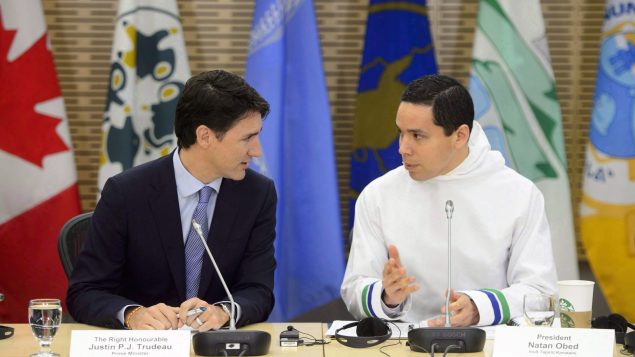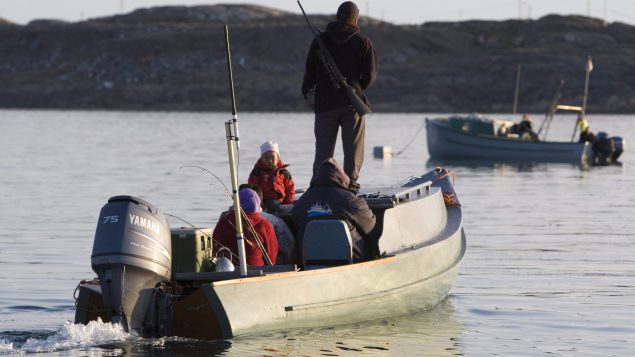Social infrastructure to deal with the mental health crisis affecting Inuit communities, housing, renewable energy and climate action, a partnership with the Crown and sustainable economic development of Canada’s Arctic regions are among the priorities for federal parties unveiled Friday by the national Inuit organization ahead of the Oct. 21 election .
The economic and social development of Inuit Nunangat – the Inuit homeland that encompasses nearly one third of Canada’s landmass and its entire Arctic coastline – is a nation building exercise comparable in scale to the development of the trans-Canadian railway that connected Western and Eastern Canada in the late 19th century, said in a statement Inuit Tapiriit Kanatami (ITK).
“Inuit Nunangat is synonymous with the term ‘Arctic’, and its future should be central to the platform of every national party in this election at a time of surging international interest and activity in our homeland,” the Inuit organization said in a statement as it released ITK Priorities for Election 2019.
“Long-standing challenges such as the infrastructure gap between Inuit Nunangat and the rest of Canada are impediments to the prosperity of Inuit and the sustainability of the region.”
Relationship-building and systemic change

Prime Minister Justin Trudeau talks with Natan Obed, president of the Inuit Tapiriit Kanatami as they participate in the Inuit-Crown Partnership Committee Leaders Meeting in Ottawa on March 29, 2018. (Sean Kilpatrick/THE CANADIAN PRESS)
The majority of Canada’s Inuit live in the 51 communities of Inuit Nunangat, which includes the Inuvialuit Settlement Region in the Northwest Territories, the territory of Nunavut, Nunavik in Northern Quebec, and Nunatsiavut in Northern Labrador.
“ITK calls on all parties to commit to implementing an Inuit Nunangat policy throughout government, to ensure that Inuit are able to access and benefit from policies, programs and initiatives that are intended to benefit our people,” said in a statement ITK president Natan Obed.
“Relationship-building and bringing about systemic change within the machinery of government are key to creating social and economic equity for Inuit, as well as for ensuring that federal investments in Inuit Nunangat are efficient and impactful in advancing nation building,” he added.
Addressing inequality

Inuit hunters go out in their boat as the sun prepares to set in Iqaluit, Nunavut, Friday, August 21, 2009. (Jonathan Hayward/THE CANADIAN PRESS)
Inuit Nunangat remains the least developed geographic region in Canada. Inuit experience extreme inequality compared to other Canadians, and to other Canadians in Inuit Nunangat, Obed said.
Addressing social and economic inequity, both between Inuit Nunangat and within Inuit Nunangat itself, is a necessary pre-condition to the development of a healthy, resilient and secure Inuit Nunangat, he said.
“One-third of Inuit are under the age of 14, meaning policy interventions that target health, education and social development will have a disproportionately beneficial impact in Inuit Nunangat compared to other regions within Canada,” the ITK statement said.
“As a result, Canadian policy should commit to ambitious investments throughout Inuit Nunangat, with the goal of eliminating infrastructure gaps and social and economic inequities throughout the region.”
Many of the priorities identified by ITK have been identified in the long-awaited Arctic and Northern Policy Framework, which the Liberal government released on Sept. 10, just a day before calling the federal election.
However, the policy to which the ITK contributed a chapter, has been criticized by exerts as lacking specifics.







For reasons beyond our control, and for an undetermined period of time, our comment section is now closed. However, our social networks remain open to your contributions.